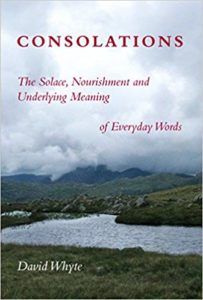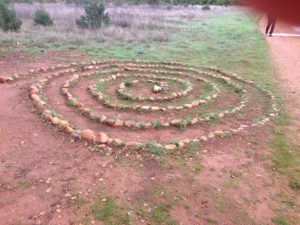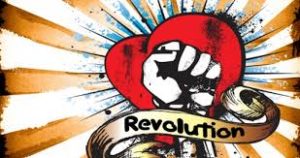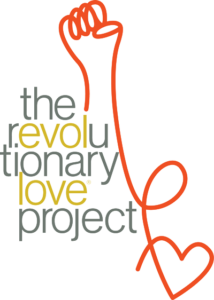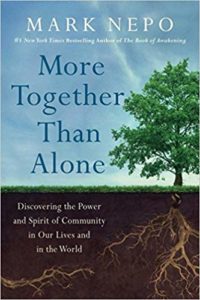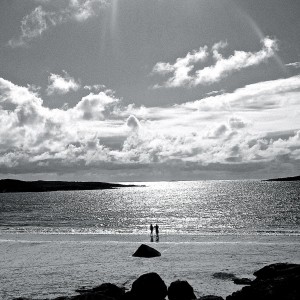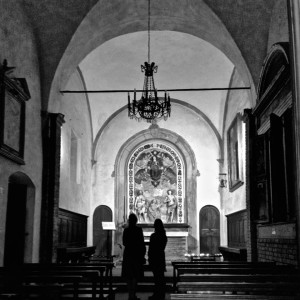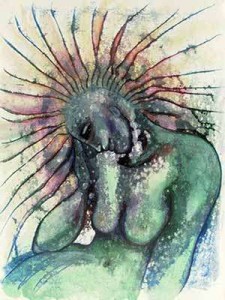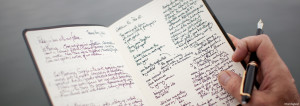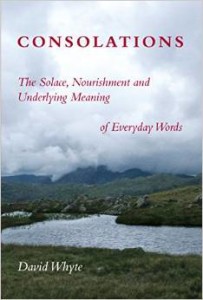David Whyte
David & Seth
January 2, 2020Seth Godin:
A Box of Infinity
It’s hard to look right at it.
The possibility that lies before us, the chance to connect, to lead, to be heard–it’s bigger than it’s ever been.
Tempting indeed to avert your eyes, because staring into infinity means embracing just how small we feel. We avert our eyes because to realize how much potential we have to contribute puts us on the hook.
But whether we ignore it or not, the infinity of possibility remains.
Dance with it.
︶⁀°• •° ⁀︶
David Whyte:
Hiding
It’s a way of staying alive. Hiding is a way of holding ourselves until we are ready to come into the light. Hiding is one of the brilliant and virtuoso practices of almost eery part of the natural world: the protective quiet of an icy northern landscape, the head but of a future summer rose, the snowbound internal pulse of the hibernating bear. Hiding is underestimated. We are hidden by life in our mother’s womb until we grown and ready ourselves for our first appearance in the lighted world; to appear too early in that world is to find ourselves with the immediate necessity for outside intensive care.
Hiding done properly is the internal faithful promise for a proper future emergence, as embryos, as children or even as emerging adults in retreat from the names that have caught us and imprisoned us, often ways where we have been too easily seen and too easily named.
We live in a time of the dissected soul, the immediate disclosure; our thoughts, imaginings and longings exposed to the light too much, too early and too often, our best qualities squeezed to soon into a world already awash with ideas that oppress our sense of self and our sense of others.
What is real is almost always to begin with, hidden, and does not want to be understood by the part of our mind that mistakenly thinks it knows what is happening. What is precious inside us does not care to be known by the mind in ways that diminish its presence.
Hiding is an act of freedom from the misunderstanding of others, especially in the enclosing world of oppressive secret government and private entities, attempting to name us, to anticipate us, to leave us with no place to hide and grow in ways unmanaged by creeping necessity for absolute naming, absolute tracking and absolute control.
Hiding is a bid for independence, from others from mistaken ideas we have about ourselves form an oppressive mistaken wish to keep us completely safe, completely ministered to, and therefore completely managed. Hiding is creative, necessary and beautifully subversive of outside interference and control. Hiding leaves life to itself, to become more of itself. Hiding is the radical independence necessary for our emergence into the light of a proper human future.
‘Life isn’t a straight line.’
May 25, 2019On Being.
How to chart your own ‘River of Life.’
Before one of his poetry readings at the On Being Gathering, David Whyte quoted these famous lines from poet Antonio Machado:
“Caminante, no hay camino,
se hace camino al andar.
Al andar se hace camino …”
“Pathmaker, there is no path,
You make the path by walking.
By walking, you make the path …”
River of Life Exercise
Editor’s Note: This activity was originally developed by Joyce Mercer. It is edited and adapted with permission.
All you need is a pen and a blank sheet of paper. Give yourself at least 30 minutes to work through it.
Step One: Reflect
Think about the course of your life. Take a moment to consider the following questions:
- If your life were a river, what shape would it take?
- Where are the bends and turns, when your situation or perspective changed? Was the transition smooth or sudden?
- Are there rocks or boulders — obstacles or life-altering moments — falling into your river?
- Are there points at which it flows powerfully and purposefully or slows to a trickle?
Step Two: Frame
Draw your river of life with its bends and turns, smooth waters and rough spots, strength and vitality.
- Label your approximate age and/or dates along the flow of your river.
- Identify various key events in your life that shape your story — the boulders in the river or places where the river changes course.
- If you were to divide your life journey into sections, where would the sections divisions occur? Name each of the sections of your life river.
Step Three: Guide
Think about the various people who have accompanied you along this river’s journey. Record these key relationships and losses in the appropriate places on your river of life. If you wish, you can also record thoughts and feelings attached to these relationships.
- What relationships have been most significant at different positions in your life?
- Who has most shaped you?
- Have there been significant losses of relationships along the way?
- What groups or communities of people were most important?
Step Four: Contextualize
Reflect on your life’s journey and trajectory. Using words and/or symbols, place life events in the appropriate locations on your diagram.
- Are there times of significant pain or suffering — yours or others’ — that shape the flow of your life river?
- What was going on in the world — locally, regionally, or around the world — that shape the flow of your life river?
Step Five: Evaluate
Note what has been important to you.
- What values, commitments, causes, or principles were most important to you at a given point in your life?
- Toward what goals, if any, were your primary energies directed? Or, metaphorically speaking, what purposes and ends helped to shape the flow of life waters at a given time in your experience?
As you finish depicting your river of life, review the whole diagram. Do its symbols and words seem to portray how you think and feel about the whole of your life? Is there some important element left out? Make adjustments as needed. Remember that no diagram can possibly capture all that shapes your journey.
You can share your river of life with others or simply use it as a tool for personal reflection.
PDF printable version:
https://onbeing.org/wp-content/uploads/2019/05/on-being-river-of-life-exercise.pdf
Revolutionary ❤
July 28, 2018David Whyte
Heartbreak is unpreventable; the natural outcome of caring for people and things over which we have no control
Heartbreak begins the moment we are asked to let go but cannot, in other words, it colors and inhabits and magnifies each and every day; heartbreak is not a visitation, but a path that human beings follow through even the most average life. Heartbreak is an indication of our sincerity: in a love relationship, in a life’s work, in trying to learn a musical instrument, in the attempt to shape a better more generous self. Heartbreak is the beautifully helpless side of love and affection and is [an] essence and emblem of care… Heartbreak has its own way of inhabiting time and its own beautiful and trying patience in coming and going.
Maria Popova:
“Words belong to each other,” Virginia Woolf asserted in the only surviving recording of her voice. But words also belong to us, as much as we belong to them — and out of that mutual belonging arises our most fundamental understanding of the world, as well as the inescapable misunderstandings that bedevil the grand sensemaking experiment we call life.
David Whyte:
Heartbreak is how we mature; yet we use the word heartbreak as if it only occurs when things have gone wrong: an unrequited love, a shattered dream… But heartbreak may be the very essence of being human, of being on the journey from here to there, and of coming to care deeply for what we find along the way.
[…]
There is almost no path a human being can follow that does not lead to heartbreak.
Then, p. 113-115 in Consolations:
Hiding is a way of staying alive. Hiding is a way of holding ourselves until we are ready to come into the light. Hiding is one of the brilliant and virtuoso practices of almost every part of the natural world: the protective quiet of an icy northern landscape, the held bud of a future summer rose, the snowbound internal pulse of the hibernating bear. Hiding is underestimated. We are hidden by life in our mother’s womb until we grow and ready ourselves for our first appearance in the lighted world; to appear to early in that world is to find ourselves with the immediate necessity for outside intensive care.
Hiding is an act of freedom from the misunderstanding of others, especially in the enclosing world of oppressive secret government and private entities, attempting to name us, to anticipate us, to leave us with no place to hide and grow in ways unmanaged by a creeping necessity for absolution naming, absolute tracking and absolute control. Hiding is a bid for independence from others, from mistaken ideas we have about ourselves, from an oppressive and mistaken wish to keep us completely safe, completely ministered to,and therefor completely managed. Hiding is creative, necessary and beautifully submerse of outside interference and control. Hiding leaves life to itself Hiding is the radical independence necessary four our emergence into the light of a proper human future.
Parker Palmer
p. 161:
Suffering breaks our hearts, but the heart can break in two quite different ways. There’s the brittle heart that breaks into shards, shattering the one who suffers as it explodes, and sometimes taking others down when it’s thrown like a grenade at the ostensible source of its pain. Then there’s the supple heart, the one that breaks open, not apart, the one that can grow into great capacity for the many forms of love. Only the supple heart can hold suffering in a way that opens to new life.
p.39:
We both know that everyone has inner wisdom, and that one of the best ways to evoke it is in dialogue.
p. 161
Does a nation-state have a heart that can become supple enough to respond to collective suffering without violence?[…] I am not going to yield to cynicism. There are enough real-world facts and possibilities to justify hope.
p. 172
Pay attention to what’s right here, right now, and you’ll be rewarded immediately–the Beloved Community is in our midst.
pp. 117-188
Keep reaching out means saying to the world, “I’m still a member of this community. I have a voice and things I need to say, and I want to be part of the conversation.” Seeking Sanctuary is about finding the solace and support we need when our engagement with the rough-and-tumble world of politics starts to cost us our physical and mental well-being. I’m a Quaker. I stand in a religious tradition that asks me to live by such values as community, equality, simplicity, and nonviolence.
Recognize manipulations of
F
E
A
R
“Violence is what happens when we don’t know what to do with our suffering.” [Palmer]
Valarie Kaur is a civil rights activist whose personal lens is colored through feminism and inspired by the Sikh concept of the warrior-saint.
p. 157:
Valarie is redefining and reviving the great tradition of nonviolent action in terms that respond to what Martin Luther kIng Jr. called “The fierce urgency of now.”
Quoting Thomas Merton:
“Loving God is a piece of cake compared to loving another human being. Being human is harder than being holy.”
Revolutionary Love
Declaration of Revolutionary Love:
We declare love even for our opponents. We vow to oppose all executive orders and policies that threaten the rights and dignity of any person. We call upon our elected officials to join us, and we are prepared to engage in moral resistance throughout this administration. We will fight not with violence or vitriol, but by challenging the cultures and institutions that promote hate. In so doing, we will challenge our opponents through the ethic of love.
Thich Nhat Hanh
Enlightenment for a wave is the moment the wave realizes that it is water. At that moment, all fear of death disappears.
Profoundly, grace comes to the wave when it realizes what it is made of. Since it has risen from the very same water into which it will crash its fear of ending is somehow lessened. For it is already a part of where it is going. Can it be that you and I, like simple waves experience such an enlightenment the instant we realize that we are all made of the same water? […] I think now that the other way to read all t his is to say that enlightenment is the moment we realize that we are made of love. At that moment, all fear of living disappears. For grace comes to the heart when it realizes what it is made of and what it has risen from.
-Mark Nepo, The Book Of Awakening
“The ‘Go away’ tribe believes that human beings by nature are self-serving and untrustworthy, in need of control. The ‘Go away’ tribe believes in stringent laws and constraints, both moral and legal, to ensure that people don’t run amok. The ‘Come, teach me’ tribe believes that human beings by nature are kind and trustworthy. The ‘Come, teach’ tribe believes in cultivating laws that empower freedom, to ensure that people actualize their gifts through relationship.
While Mark was a perceptive diagnostician of the modern world, offering insights into the human cost of industrialization. Marx foresaw that capitalism and industrialization break people from their true nature. In time, the modern world alienates from our true selves, which leads to fear and the strident calls of the “Go away’ tribe. Regardless of the type of government we support, there is always the need to repair that brokenness and to restore us to our true nature–from which we rediscover, one more time, that we are more together than alone.”
What we see across the devoid is us. We have created the systems we suffer under.”
Walter Starke
I realized that the spiritualization of our nation’s corporations is the most important development that can possibly happen for the spiritual growth of the the world as a whole.
A future sky.
December 19, 2017What to Remember When Waking
In that first hardly noticed moment in which you wake,
coming back to this life from the other
more secret, moveable and frighteningly honest world
where everything began,
there is a small opening into the new day
which closes the moment you begin your plans.
What you can plan is too small for you to live.
What you can live wholeheartedly will make plans enough
for the vitality hidden in your sleep.
To be human is to become visible
while carrying what is hidden as a gift to others.
To remember the other world in this world
is to live in your true inheritance.
You are not a troubled guest on this earth,
you are not an accident amidst other accidents
you were invited from another and greater night
than the one from which you have just emerged.
Now, looking through the slanting light of the morning window
toward the mountain presence of everything that can be
what urgency calls you to your one love?
What shape waits in the seed of you
to grow and spread its branches
against a future sky?
Is it waiting in the fertile sea?
In the trees beyond the house?
In the life you can imagine for yourself?
In the open and lovely white page on the writing desk?
— David Whyte
Loving. Fiercely.
October 4, 2016There is a faith in loving fiercely
the one who is rightfully yours
especially if you have
waited years and especially
if you never believed
you could deserve this
loved and beckoning hand
held out to you this way.
I am thinking of faith now
and the testaments of loneliness
and what we feel we are
worthy of in this world.
…and I think of the story
of the storm and everyone
waking and seeing
the distant
yet familiar figure
far across the water
calling to them
and how we are all
preparing for that
abrupt waking,
and that calling,
and that moment
we have to say yes,
except it will
not come so grandly
so Biblically
but more subtly
and intimately in the face
of the one you know
you have to love
so that when
we finally step out of the boat
toward them, we find
everything holds
us, and everything confirms
our courage, and if you wanted
to drown you could,
but you don’t
because finally
after all this struggle
and all these years
you don’t want to any more
you’ve simply had enough
of drowning
and you want to live and you
want to love and you will
walk across any territory
and any darkness
however fluid and however
dangerous to take the
one hand you know
belongs in yours.
Excerpted from THE TRUELOVE
From ‘The Sea in You :
Twenty Poems of Requited and Unrequited Love
© David Whyte and Many Rivers Press
David Whyte.
September 14, 2016FORGIVENESS
is a heartache and difficult to achieve because strangely, the act of forgiveness not only refuses to eliminate the original wound, but actually draws us closer to its source. To approach forgiveness is to close in on the nature of the hurt itself, the only remedy being, as we approach its raw center, to reimagine our relation to it.
It may be that the part of us that was struck and hurt can never forgive, and that forgiveness itself never arises from the part of us that was actually wounded. The wounded self may be the part of us incapable of forgetting, and perhaps, not meant to forget…
Stranger still, it is that wounded, branded, un-forgetting part of us that eventually makes forgiveness an act of compassion rather than one of simple forgetting…
Forgiveness is a skill, a way of preserving clarity, sanity and generosity in an individual life, a beautiful question and a way of shaping the mind to a future we want for ourselves; an admittance that if forgiveness comes through understanding, and if understanding is just a matter of time and application then we might as well begin forgiving right at the beginning of any drama, rather than put ourselves through the full cycle of festering, incapacitation, reluctant healing and eventual blessing.
…at the end of life, the wish to be forgiven is ultimately the chief desire of almost every human being. In refusing to wait; in extending forgiveness to others now, we begin the long journey of becoming the person who will be large enough, able enough and generous enough to receive, at our very end, that necessary absolution ourselves.
‘FORGIVENESS”
Excerpt from CONSOLATIONS
Touch.
August 11, 2016
TOUCH
David Whyte
Is what we desire in one form or another, even if we find it through being alone, through the agency of silence or through the felt need to walk at a distance: the meeting with something or someone other than ourselves, the light brush of grass on the skin, the ruffling breeze, the actual touch of another’s hand; even the gentle first touch of an understanding which until now, we were formally afraid to hold.
Whether we touch only what we see or the mystery of what lies beneath the veil of what we see, we are made for unending meeting and exchange, while having to hold a coherent mind and body, physically or imaginatively, which in turn can be found and touched itself. We are something for the world to run up against and rub up against: through the trials of love, through pain, through happiness, through our simple everyday movement through the world.
And the world touches us in many ways, some of which are violations of the body or our hopes for safety: through natural disaster, through heartbreak, through illness, through death itself. In the ancient world the touch of a God was seen as both a blessing and a violation – at one and the same time. Being alive in the world means being found by the world and sometimes touched to the core in ways we would rather not experience. Growing with our bodies, all of us find ourselves at one time violated or wounded by this world in difficult ways, and still we live and breathe in this touchable, sensual world, and through trauma, through grief, through recovery, we heal in order to be touched again in the right way, as the physical consecration of a mutual, trusted invitation.
Nothing stops the body’s arrival in each new present, except death itself, which is intuited in all cultures as another, ultimate, intimate form of meeting. Nothing stops our ageing nor our witness to time, asking us again and again to be present to each different present, to be touchable and findable, to be one who is living up to the very fierce consequences of being bodily present in the world.
To forge an untouchable, invulnerable identity is actually a sign of retreat from this world; of weakness, a sign of fear rather than strength, and betrays a strange misunderstanding of an abiding, foundational and necessary reality: that untouched, we disappear.
…
Excerpted from ‘TOUCH’ From
CONSOLATIONS: The Solace, Nourishment
and Underlying Meaning of Everyday Words.
Image: Deborah Koff-Chapin
‘Deborah Koff-Chapin is one of the world’s leaders in Transformative Arts.
Michael Grady, Dean, Graduate School Arts and Consciousness John F Kennedy University’
Heartbreak.
June 30, 2016David Whyte.
Heartbreak is something we feel happens only when things have gone wrong: an unrequited love, a shattered dream, a child lost before their time. Heartbreak is to be avoided; something to guard against, a chasm to watch for and then walk carefully around; the hope is to live without it and to have as little as possible, but all evidence is to the contrary of these child-like hopes; heartbreak is as inescapable and in- evitable as breathing, a part and parcel of every path, asking for its due in every sincere course an individual takes. It may be that there is no real life without the raw revelation of heartbreak; no single path we can take within a life that will allow us to escape without having that imaginative organ we call the heart broken by what it holds and then has to let go.
In a sobering physical sense, every heart does eventually break, as the precipitating reason for death or because the rest of the body has given up before it, but hearts also break in an imaginative and psycho-logical sense: there is almost no path a human being can follow that does not lead to heartbreak. A marriage, a committed vow to another – even the most settled, loving relationship will break our hearts at one time another; parenthood, no matter the sincerity of our love for a child, will always break the mold of our motherly or fatherly hopes; a good work, if taken seriously, will often take everything we have and still leave us wanting; finally even the most self compassionate, self examination should, if we are sincere, lead eventually to existential disappointment.
Realizing its inescapable nature, we can see heartbreak not as the end of the road or the cessation of hope but as the close embrace of the essence of what we have wanted or are about to lose. It is the hidden DNA of our relationship with life, outlining outer forms by the intimate physical experience generated by its absence; it can ground us truly in whatever grief we are experiencing, set us to planting a seed with what we have left or appreciate what we have even as we stand in its ruins. If heartbreak is inevitable and inescapable, it asks us to look for it, to see it as our constant and instructive companion, and perhaps, in the depth of its impact as well as in its hindsight, see it as its own reward. Heartbreak asks us not to look for an alternative path, because there is no alternative path. It is an introduction to what we love and have loved, an inescapable question, something and someone that has been with us all along, asking us to be ready for the ultimate letting go.’
Consolations, by David Whyte
April 30, 2015“Words belong to each other,” Virginia Woolf asserted in the only surviving recording of her voice. But words also belong to us, as much as we belong to them — and out of that mutual belonging arises our most fundamental understanding of the world, as well as the inescapable misunderstandings that bedevil the grand sensemaking experiment we call life. (Friendship, love, and heartbreak.)

